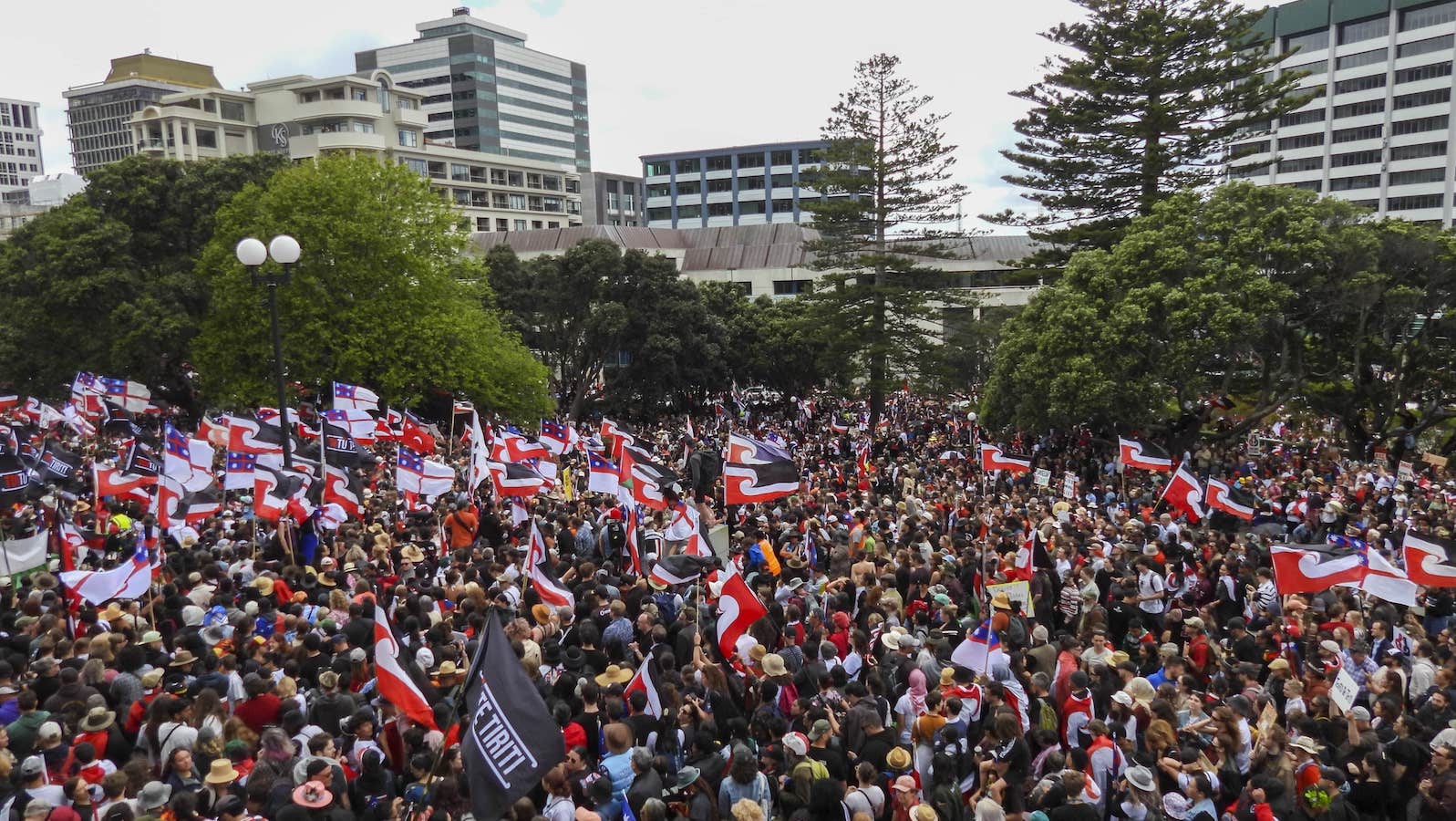Mass protests were held in New Zealand this week over an effort to weaken the rights of the Maori, who often serve as environmental stewards.
“Indigenous rights have been one of the strongest roadblocks to corporate exploitation.”
“That redefinition could diminish Māori participation and environmental governance, as the treaty currently ensures that Māori involvement in managing national natural resources,” said Mike Smith, a Māori climate activist who has two climate lawsuits pending before the country’s high court. “So by limiting these rights, the bill may weaken the environmental stewardship practices that are rooted in Māori morals and values and thereby impact the country’s ability to address all the environmental challenges, and more particularly combat climate change effectively.”
I’m not very familiar with how things work in NZ, but I started reading about this story in another post yesterday and found it very intriguing.
The Treaty Principles bill isn’t expected to pass in the current Parliament, although it could eventually head to a referendum. But it’s just one part of a broader right-wing backlash against the significant gains that Māori have made in recent decades to win back stolen land and secure better representation and co-governance of government agencies.
Smith sees the measure as an effort to play upon the fears of the non-Māori population and make it easier for private interests to profit. “It’s an indicator that they want to stomp on Māori rights and philosophies and worldviews. It’s an indicator that they just are refusing to fight the challenge that climate change and the global biodiversity crisis demands of us,” he said.
“This is not just about Māori interests and rights. This is about the protection of all that we hold dear,” said Māori activist Tina Ngata, who has been hosting online education sessions about the bill. “Indigenous rights have been one of the strongest roadblocks to corporate exploitation.”
This article seemed to make it sound like the set up for a big cash grab by the NZ gov to tap into natural resources and nationalize things like water rights. With Maori being around 1/5 of the population, that sounds like it still gives them strong voices in a parliamentary system. The existing balance in how the terms of the treaty are being applied, while not ideal for Maori, still gives them some additional leverage in a government they’re not necessarily thrilled with being there at all as they still see themselves as the true people/leaders/government (not sure on what descriptor is appropriate here).
While this parliamentary vote is likely to bomb, this is still building momentum for a referendum. To pass that, does that simply require a majority vote, or is there more to it? Can they just sell this to the majority non-Maori population as a get rich quick scheme to get them to pass it?
Forgive my ignorance on anything I may have gotten wrong, I know there is a lot more complexity to this issue, I just don’t know which direction to go to get deeper into learning about this. If anyone wants to explain any of it better or point me to some accurate resources to read more, I’d appreciate whatever you have to share!
I so hate to see the global right-wing-nutjob cancer spreading to NZ.
Peter Theil is my guess.



